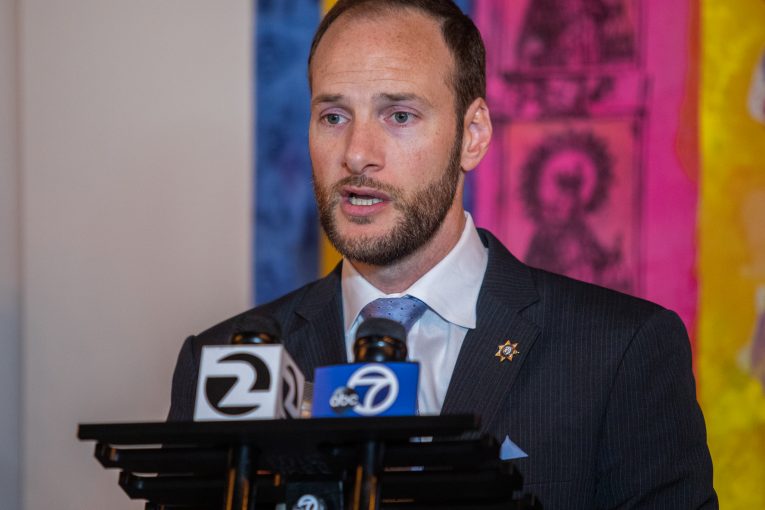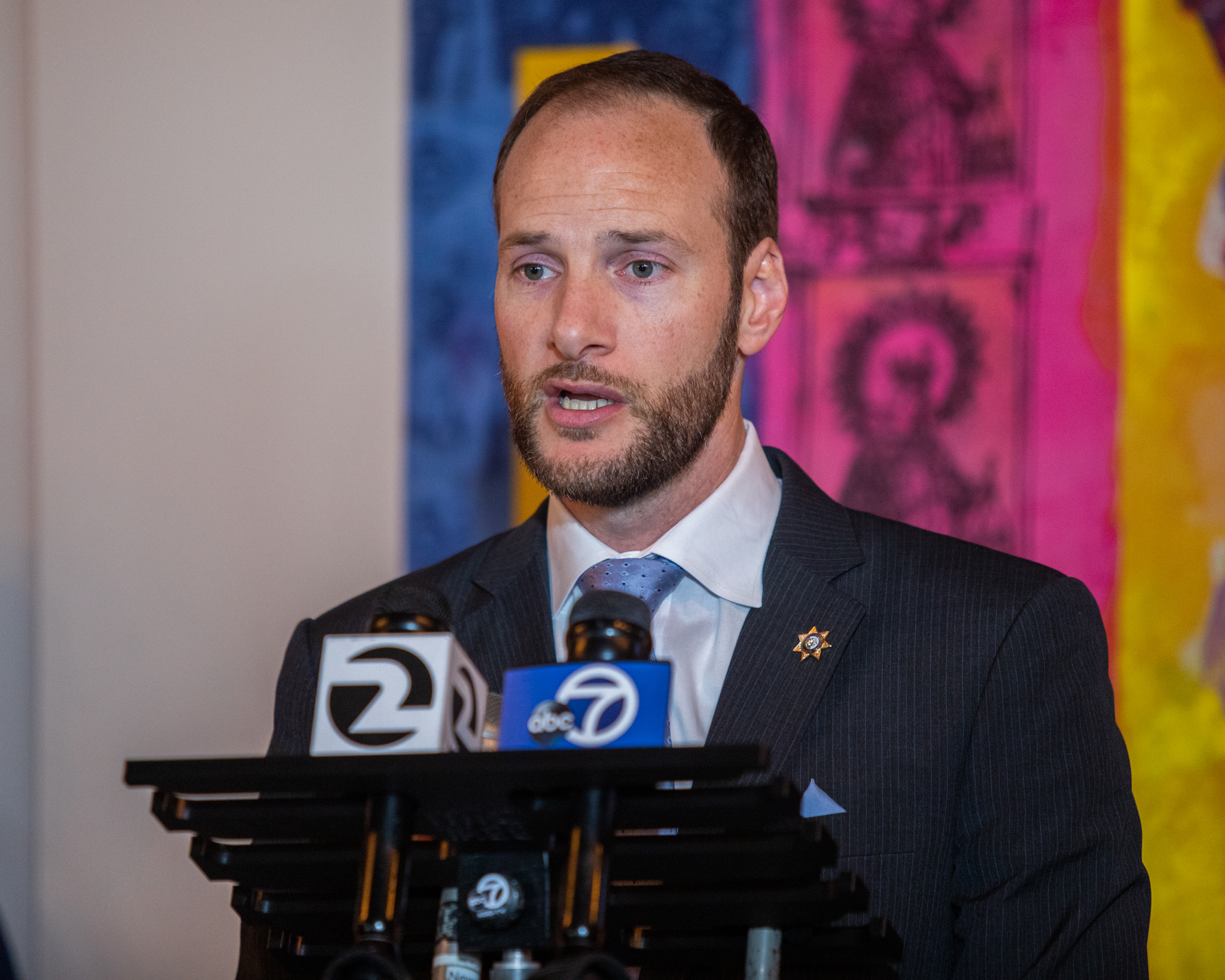

For years, district attorneys working hand in hand with police have looked the other way and minimized police officers with spotty to bad records on officer misconduct and use of force. This despite the fact that many DA’s offices carry private “Brady Lists” of officers with a history of serious misconduct.
San Francisco District Attorney Chesa Boudin on Monday took a step toward rectifying the situation by announcing a new policy that would prevent the charging and prosecution of cases relying upon the word of officers who have previously been found to have committed serious misconduct.
The directive is aimed at ensuring that no one is falsely prosecuted as a result of the word or actions of officers with a known history of excessive force, dishonesty, or racial bias. Officers who fit the criteria for having sustained prior serious misconduct will be tracked to ensure cases depending on those officers are not filed.
“We have seen across the country repeated instances of police violence inflicted upon people of color and the Black community—often by officers with prior known misconduct, yet whose words prosecutors continued to trust in filing charges,” said District Attorney Boudin. “This directive ensures that members of the public are not wrongly or unfairly accused by officers whom we know have displayed the  kind of misconduct that permanently damages their credibility or the trust we place in them.”
kind of misconduct that permanently damages their credibility or the trust we place in them.”
The policy prohibits the charging of any criminal case when an officer has a record of misconduct because of excessive force; racial bias; discrimination based on race, national origin, sexual orientation or gender; dishonesty regarding a crime; or other serious misconduct that taints the reliability of that officer’s testimony. Lawyers in the District Attorney’s Office’s Trial Integrity Unit (TIU) will compile a list of officers falling within those misconduct categories and the list will be updated regularly. No charges can be filed based on the allegations of an officer on that list without approval by District Attorney Boudin. The District Attorney’s Office will also continue, as is its practice, to track data regarding the impact of this policy directive on dismissals or discharges. The TIU will regularly request police officer personnel records that are discoverable pursuant to Penal Code section 1421.
The policy directive follows yet another instance of a police officer killing of a Black man: Rayshard Brooks in Atlanta. His death at the hands of police officers follows a series of high-profile murders by police, including the killings of George Floyd and Breonna Taylor. In recent weeks, District Attorney Boudin has implemented a series of reforms aimed at police accountability; prevention of police violence and racial biases by law enforcement; protections for victims of police violence; and internal policy directives to ensure the integrity of prosecutions in cases highly dependent on police officers’ words.
The directive does not implicate cases where charges can be filed based on another officer’s account or where there is additional corroborative evidence that deems the affected officer’s testimony unnecessary. Instead, the directive is limited to cases where an officer with a known record for abuse, bias, or significant dishonesty is the only source of a material, necessary fact relevant to potential charges. A material fact is one that is reasonably germane to a decision, the suppression of which would result in a different decision. Cases with material, necessary facts that can be proven through another form of corroboration can still be prosecuted.
Police accountability advocates praised this new policy. “Prosecutors must not only hold accountable officers who commit serious misconduct but also should not rely on their word in charging cases,” said John Crew, longtime police reform advocate and retired ACLU police practices expert. “I commend DA Boudin’s leadership in preventing unfair prosecutions that depend on the untrustworthy accounts of problematic officers.”
To sign up for our new newsletter – Everyday Injustice – https://tinyurl.com/yyultcf9






So if one of these officers needs to testify in a murder case the case will never go forward and the murderer will get off Scot free without a trial? Sounds crazy…
You need to read the proposal more carefully.
“Officers who fit the criteria for having sustained prior serious misconduct will be tracked to ensure cases depending on those officers are not filed.”
A murder case is not going to *depend* on any officer. There will be physical evidence. There will be other evidence.
What they are talking about is officer witnessed incidents – that’s very rarely going to be a murder and even more rarely will the officer be the only witness and only evidence of that murder.
But this is really a shot across the bow to the SFPD – get officers out of the department who have long histories of misconduct or it will harm your ability to get convictions.